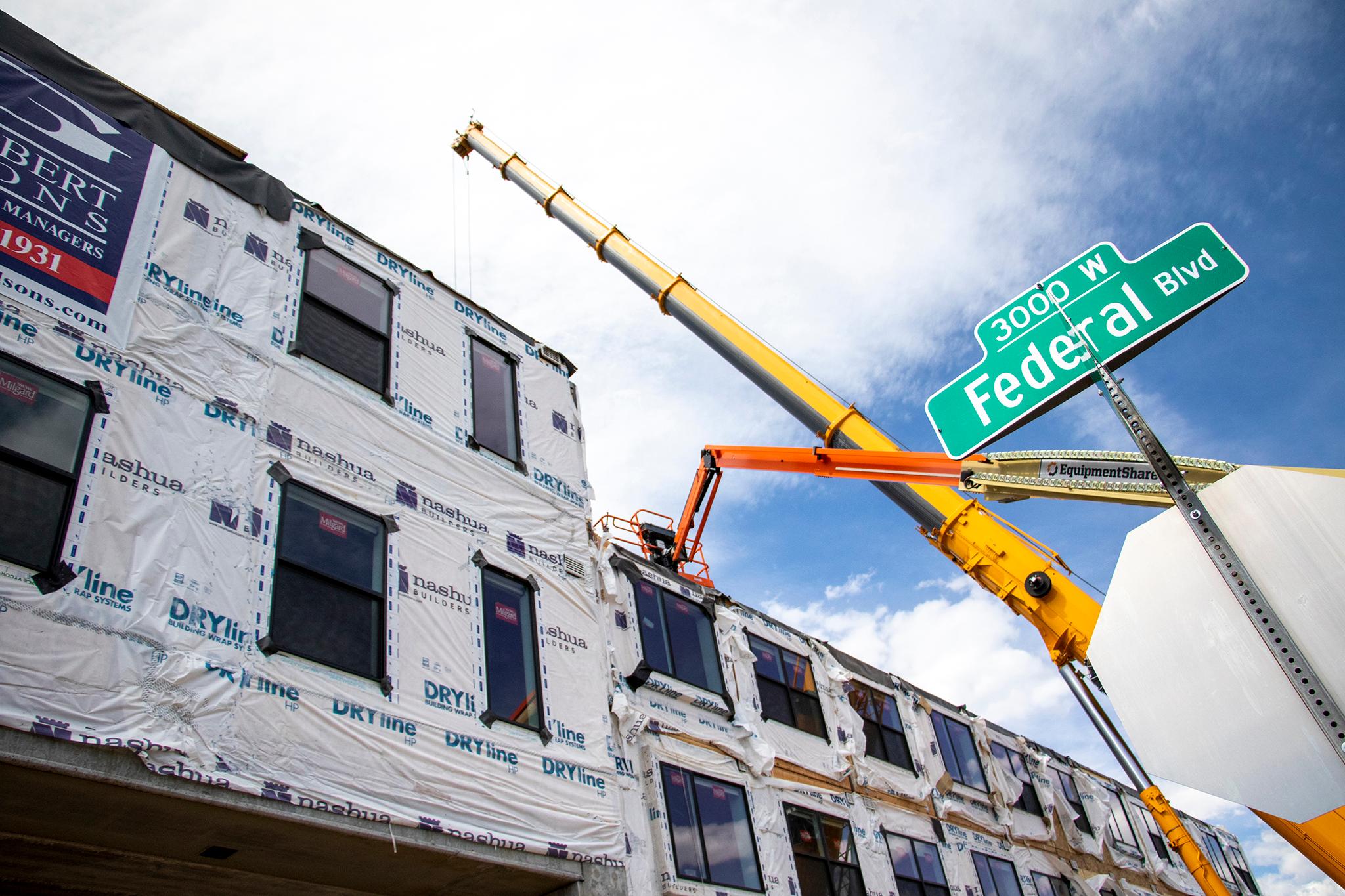Four Habitat for Humanity houses, three of which include ADUs. A Chipotle on Tower Road.
Those were the only five documented concept plans submitted to Denver Community Planning and Development in the first seven days after the launch of the city's Expanding Housing Affordability program. Another had been submitted but not fully processed. So far, that's seven homes.
Compare that to the first seven days of June 2022, when there were 22 plans submitted. If built, those projects would include at least 2,500 new homes. Those proposals slid in ahead of the affordable housing program's July 1 launch date and were a higher number of proposals than the planning department sees most months.
Still, the gap between the number of proposed homes in the first week of June over those proposed so far in July is wide.
Expanding Housing Affordability is the city's attempt to push developers to help solve Denver's affordable housing crisis.
The program mandates that developers build a certain number of income-restricted units in any new project with ten or more residential units or pay higher linkage fees which would go to the city's Dedicated Affordable Housing Fund.
The Expanding Housing Affordability plan was passed by City Council in early June and went into effect July 1. It will only create new income-restricted housing if developers build.
Some developers warned the plan would cause them to quit working on new projects in Denver.
Many already complained about too much red tape and too many regulations, slow permitting times and cumbersome rules that were preventing them from building or making the process much too expensive. While those rules may be a nuisance, the cranes speckling the skyline and the hundreds of new applications for construction projects suggest regulations aren't an outright block to new development.
Anything slowing down residential development -- from historic preservation considerations to exclusionary zoning -- is exacerbating the city's housing crisis, according to housing activist groups like YIMBY Denver.
The landlord advocacy group, the Colorado Apartment Association, told Denverite the city is short by 130,000 homes in total. According to that organization, programs like Expanding Housing Affordability will slow things down and make building new projects prohibitively expensive.
Some developers say these new rules might be the last straw, as they determine where to focus their efforts.
The city also predicted a slowdown of new applications in July, and so far, that prediction is on point.
The slowdown isn't entirely bad, from the agency's perspective, since Denver Community Planning and Development has been understaffed and was far behind in reviewing new applications. In June, the department received more than five times the normal number of concept plans and cautions developers to expect longer waits than usual.
In the past week, developers, as some promised, have not been proposing new large-scale dense developments, the sort of apartment and condo complexes many housing advocates say the city needs to address its housing shortage. That's not a reason to panic... at least, not yet. Because so many applications were submitted in June, there are more developments than expected in the works.
One week of scant proposals for dense developments isn't a sign that only single-family houses and fast-casual chains are the future of Denver. According to the planning department, chances are developers will pick up steam and start submitting new proposals in the months to come. By then, the applications for new massive developments submitted before July 1 may be on their way to becoming more than just ideas.
So far, none of the developers that submitted projects in the first seven days of June will be required to build affordable housing.
If approved, Habitat for Humanity's proposed single-family houses will be built on land owned by the City of Denver.
"The timing of the submittal was unrelated to the start of the Expanding Housing Affordability rules," explained Katie Bonomo, Habitat's real estate development project manager. "These projects will be 100% affordable so they won't be affected."
A fraction of the budget to build the new Chipotle will go into the Affordable Housing Fund. Otherwise, the true impact of this new policy won't be seen for months -- or whenever developers start applying for new projects again.











